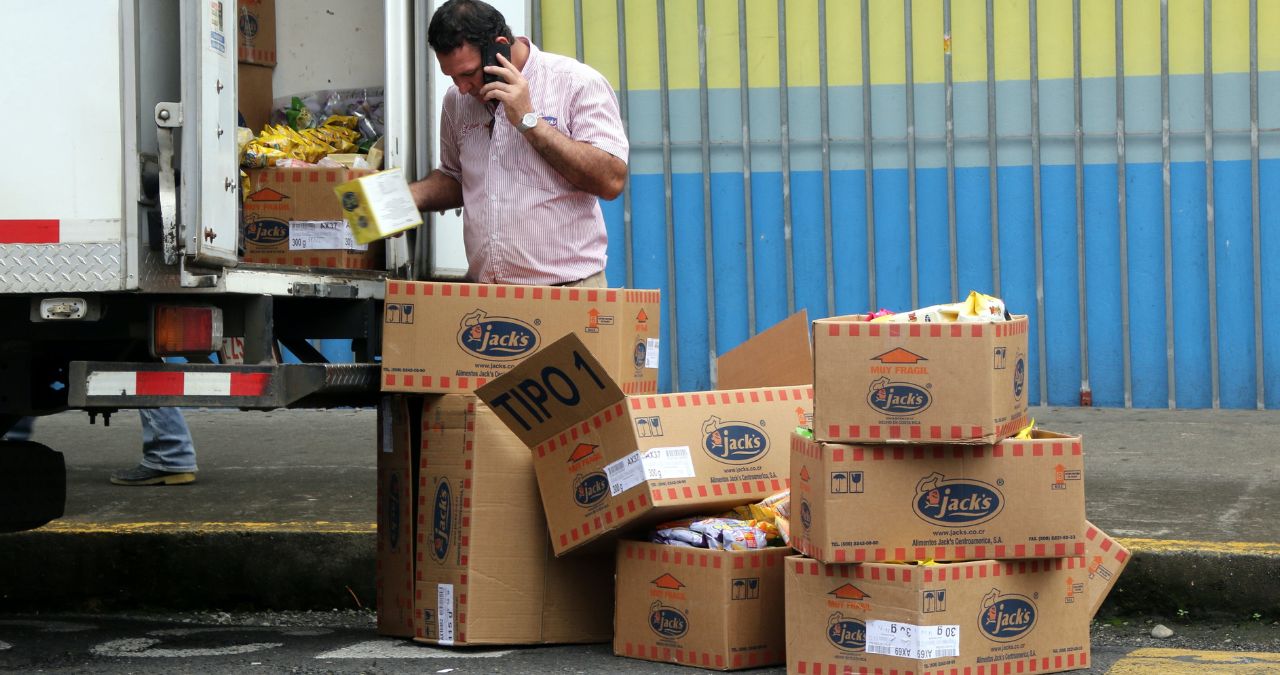Food safety is one of the most important elements of refrigerated trucking. Companies using cold trucks rely on refrigeration to keep goods at optimal temperatures until their end destination. Any drop in temperature could affect the quality of the product and can cost companies thousands in potential losses.
The Importance Of Food Safety In Refrigerated Trucking
One of the key reasons why refrigerated trucking is vital is its role in maintaining the long-term freshness of perishable goods. The increasing demand for fresh and frozen products drives refrigerated trucks to equip themselves with advanced cooling and monitoring systems to ensure they maintain the right temperature for food during transit. This precision is essential for preventing spoilage and bacterial growth, which could otherwise lead to foodborne illnesses.
Food Safety: The Real Statistics
According to the Food & Drug Administration (FDA), foods must be stored at 40°F for them to be considered safe for consumption. A constant, cold temperature allows food to remain safe and inhibits the potential for bacterial growth. Once food temperatures rise and bacterial growth begins, you cannot simply refreeze the food. This means you must discard any defrosted or exposed goods.
Different foods have distinct optimal temperature requirements. For example, meat and dairy products require colder storage than fruits and vegetables, even though elevated temperatures can be detrimental to both.
Furthermore, the global food supply chain relies on refrigerated trucking to deliver a wide variety of products across different climates and regions. From dairy and meat to fruits and vegetables, these trucks act as the guardians of food safety. Proper temperature control not only preserves the quality and taste of the food but also minimizes waste, contributing to sustainability in food production and distribution.
Food Loss Waste
Food loss causes a lot of waste to consumers, companies, and the shipping industry.
According to industry experts, at least 50% of total goods are lost at some point during the production chain in Africa. Refrigerated transport is essential, but in regions with high heat and low maintenance, refrigeration on the road isn’t an easy task. Consider Texas or Arizona, for example, where temperatures skyrocket and often at the cost of goods or transport fleets.
Waste Costs Companies
Waste can cost companies thousands of dollars. A single lost shipment means that the company has to reimburse their customer for the loss – and if your insurance isn’t taking the hit, your business is. Improper transportation of food and food storage has its costs. The more food you’re wasting, the higher the potential cost of it.
Bacterial Growth
Heat can have a drastic impact on the potential for bacterial growth on any perishable goods. Fresh produce (such as lettuce), dairy products, and meat or animal products are good examples of food that becomes a hotbed for bacterial growth when improperly refrigerated.
It’s not just about the money it costs companies to replace the shipment. Keeping food refrigerated during transportation is just as much about the potential public health risk it presents to the customer.
Any food that isn’t kept at optimal temperature (or has its temperature raised, even for a while) while being transported could become a risk. While bacterial growth isn’t always visible, it’s definitely there.
Effect Of Temperature On Bacterial Growth
Studies on the effects of temperature on bacterial growth have shown that any increase in temperature from the optimal for that type of food could spike its bacterial content. Once bacteria begin to flourish, you cannot refreeze or cool the food to eliminate it. It is considered an immediate health risk, even though bacteria are not visible.
Contaminated food might not exhibit visual differences and may not necessarily emit a foul odor. Bacterial growth can be invisible to the naked eye, which has made temperature control extremely important.
Refrigerated vehicle companies bear the responsibility of maintaining the required temperatures to keep perishable foods cold and deliver safe food.
Proper Food Truck Maintenance
Companies can make sure that refrigerated foods are kept at the right temperatures by maintaining their fleet. Cold trucks that function well are reliable, but cold trucks that can’t maintain their temperature can create big problems for food safety,
The importance of food safety in refrigerated trucking cannot be overstated. Refrigerated trucking plays a vital role in the global food supply chain, ensuring food reaches consumers safely and maintains its quality. By upholding the cold chain, refrigerated trucking is instrumental in protecting public health and reducing food waste, within the food industry making it a cornerstone of modern food transportation.
Maintain your fleet, and guarantee the safety of the products you transport.
Cannonball Express Transportation
Cannonball Express Shipping Company has been providing top-of-the-line service at a reasonable rate. Based in Omaha, Nebraska, we provide nationwide refrigerated LTL services, as well as, local delivery services. Contact us today!
Nationwide Shipping Company Services:
- Refrigerated LTL deliveries in the lower 48 states
- Refrigerated Cross dock
Local Shipping Company Services:
-
- Redelivery Services
- Truckload & LTL Capabilities
- PUP
- Cross dock
- Transload
- Warehouse and Distribution capabilities from multiple Omaha Locations

